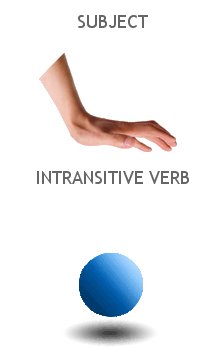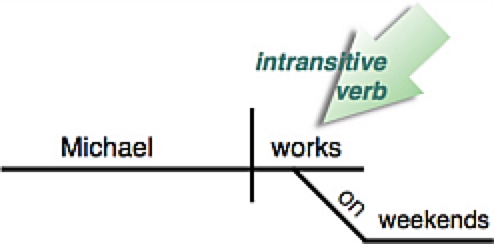
Karl J Sherlock
Associate Professor, English
Email: karl.sherlock@gcccd.edu
Phone: 619-644-7871

Etymology: Late Latin intransitivus, from Latin in- (in-) +Late Latin transitivus (transitive)
To understand the meaning of "intransitive," it's logical first to explain the straightforward meaning of "transitive": anything that transits, or carries across. The opposite of this, then, is intransitive. When an action does not carry across or affect an object, it's an intransitive verb. Another way of thinking about it is, intransitive verbs are the primary focus of the predicate. They call attention to the action, rather than to anything affected by the action.
Intransitive verbs DO NOT carry over action onto an object, but rather showcase their own action. Imagine you're in the audience of a darkened theater, watching a tap dancer perform on stage. With the lights turned down and the spotlight focused on the tap dancer's feet, only the dance is showcased in that moment—not the dancer, nor the audience for whom he's dancing. This is the defining feature of an intransitive verb. It's action for action's sake.

In the illustration above, there is no object to receive the action of the hand. The action does not "transit" or carry over onto another thing or person, but rather it is, itself, the focus.

The action "works," in this case meaning "be employed," doesn't carry over onto anything. Instead, this verb answers the question, "What activity does Michael do?"
The following is how this sentence would be diagrammed. (Note:The prepositional phrase "on the weekends" answers the question "When does he work?" so it behaves as an adverb modifying the verb "works.")

Karl J Sherlock
Associate Professor, English
Email: karl.sherlock@gcccd.edu
Phone: 619-644-7871

8800 Grossmont College Drive
El Cajon, California 92020
619-644-7000
Accessibility
Social Media Accounts